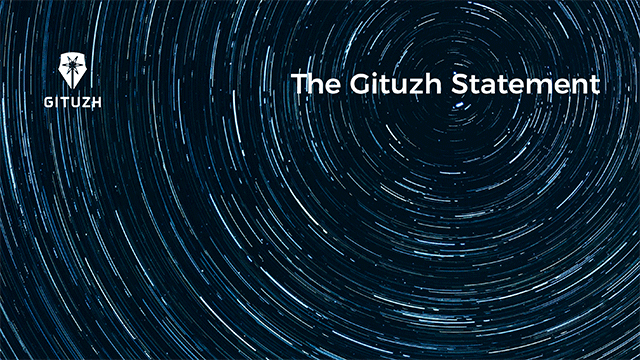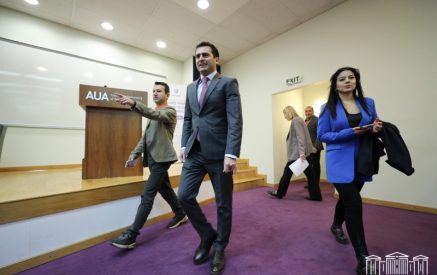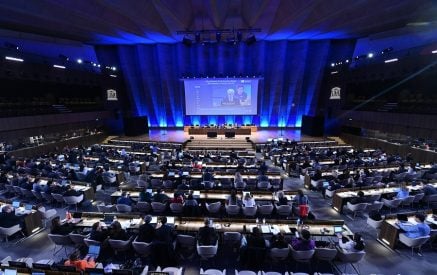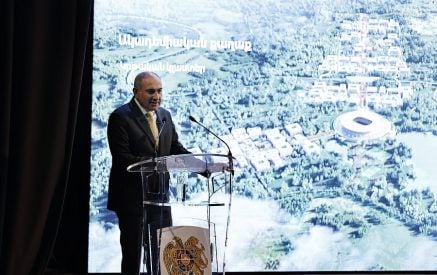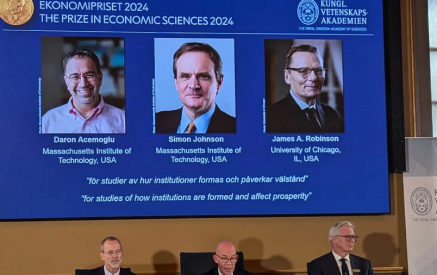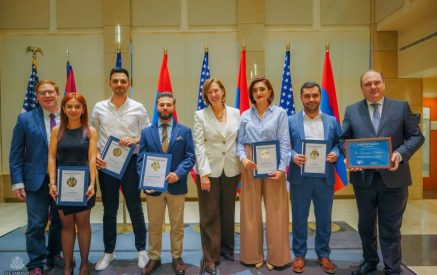Regarding the Academic City project, the future of Armenian scientific institutes, and the lack of a vision for the development of scientific and R&D capabilities to support the state goals and needs.
During a government meeting held on April 21, the proposal to establish the “Academic City” foundation was approved. The foundation will be responsible for overseeing the entire implementation of the “Academic City” project, which will involve city planning, infrastructure construction, coordination of other works, and management in the future. Although the “Academic City” project has not yet been fully outlined, official discussions and announcements indicate that several state universities and scientific institutes, as well as international and interstate universities, will be relocated from Yerevan.
Within this statement, the “Gituzh” initiative raises its most serious concerns about the “Academic City” project and the most recent developments in science policy in Armenia. Before any action is taken, relevant authorities must provide satisfactory answers to our valid inquiries.
Specifically, these concerns and questions are:
- Considering science solely as an aspect serving education, and even more so as a component that is subject to education, is unacceptable. The “Academic City” is set to be established based on the Republic of Armenia’s Law “On Approving the State Program for the Development of Education of the Republic of Armenia until 2030.” Therefore, all the targets identified in the “Academic City” project originate from the education strategy.
The discussions about the “Academic City” project are missing essential questions and objectives, related to the development of scientific and R&D activities, such as creating a state order system to fund research and development activities that align with the country’s goals and needs, defining the priority directions for science in Armenia, increasing the number of competitive scientists, developing private R&D, and establishing mechanisms and incentives to connect science with the economy.
In other words, Armenia lacks any strategy or permanent document that can define the target goals for science and R&D. As a result, the “Academic City” project only serves the goals derived from education, regarding science only as a component that contributes to improving education’s quality.
While strengthening the research component of universities and improving the connection between science and higher education is an essential issue, such an approach not only fails to address the problem but also puts the already weak scientific ecosystem’s further development and existence at risk.
- A Project without a developed strategy.
The “Academic City” project lacks developed strategy beyond basic information about its desired location and physical environment. It is unclear which universities or departments will be relocated and with which scientific institutes or scientific groups will be integrated, and based on what principle or calculation these decisions will be made.Additionally, the management of the city, especially its scientific research component, is not defined, and it is unknown what mechanisms will be developed to ensure the independence of science and, if necessary, to protect it from encroachment by government bodies?
- The “Gituzh” initiative is warning about the threats that Armenian scientific institutes and the remaining scientific potential are facing.
Universities and public research institutes are the two main actors of the state national research and innovation system. Regrettably, the steps and measures employed by those proposing the merger of scientific institutes with universities indicate a lack of understanding of the significant contribution that research and experimental developments carried out by public research institutions make in today’s world.
Before implementing any changes, the government must commit to not destroying or hindering the reforms or strategic investments in the existing academic system of managing scientific institutes without having a new system in place.
If the National Academy of Sciences (NAS) presidency cannot propose a realistic program of reforms to the government, then the RA government, as the executive body of the NAS founder, must ensure the appointment of new, younger, and internationally competitive scientists to the NAS presidency instead of dismantling the entire system.
- Has there been any involvement of scientific institutes and universities in the development or discussions of the “Academic City” project?
Members of the “Gituzh” initiative have been engaged in numerous meetings and discussions with rectors, vice-rectors, directors of scientific institutes, and individual scientists associated with the state universities and RA National Academy of Sciences. During these meetings, the stakeholders expressed their concerns about the “Academic City” project and complained about the uncertain situation created in the scientific community. They also expressed their dissatisfaction with not being included in the discussions process.
We met representatives of MoESCS and the Science committee of RA as well. The officials have assured that they will hold broad discussions with all interested parties before making any radical changes related to science policy. However, it is unclear when these promised discussions will begin and in what format. With the project already in the finalization stage, starting the discussions in September seems to be too late.
- What funding sources will the Armenian government utilize for the implementation of the Academic City project, and what are the conditions for allocating these resources?
It is our belief that not only stakeholders but also all citizens of the Republic of Armenia must be informed about the funding sources and conditions under which their government will carry out such a significant project. Also, what accountability mechanisms will be in place to ensure transparency and oversight in the future?
As we have emphasized repeatedly, the pursuit of any science-related initiative without first defining the country’s goals and needs, and without creating a national system that ensures continuous development of the R&D ecosystem based on the state order, will result in aimless resource waste and strategic nonfeasance.
The “Gituzh” initiative is committed to vigilant monitoring of the ongoing processes and plans to facilitate both open and closed discussions with all concerned stakeholders across various public platforms. We expect that policymakers entrusted with scientific decision-making recognize the significance of transparent processes, constructive feedback, and impartial evaluations and would readily participate in the discussions we aim to initiate.




















































